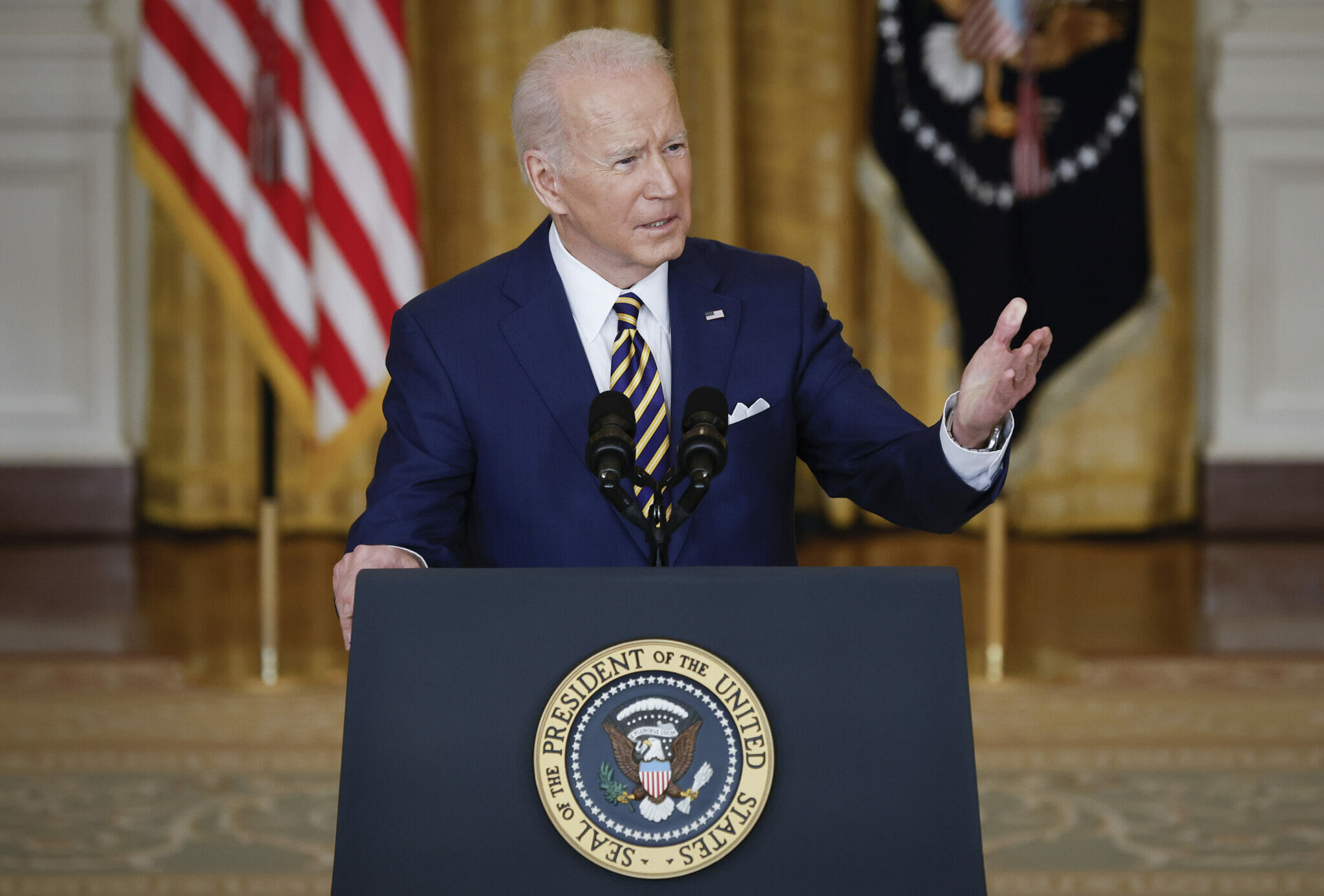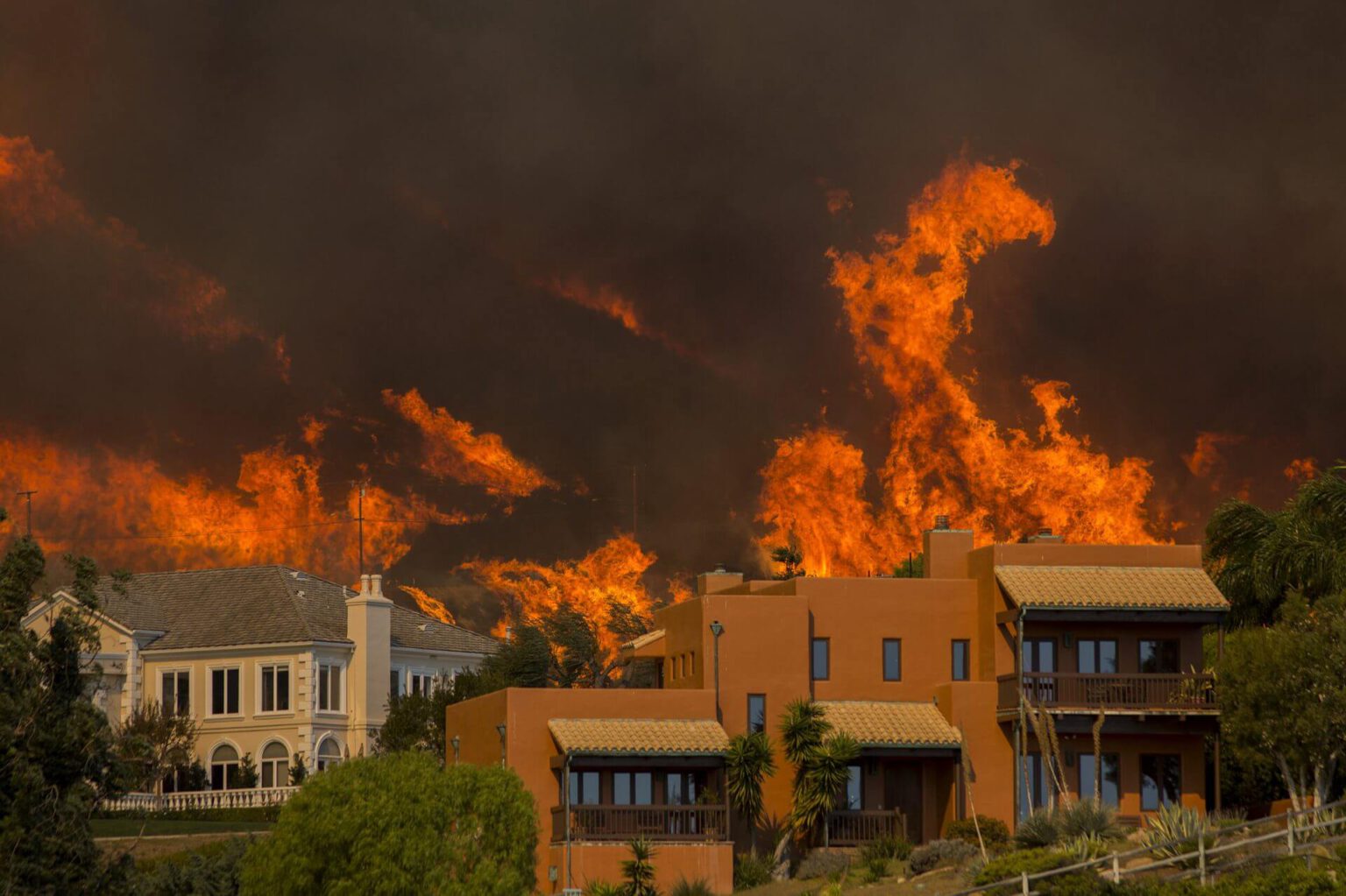“What are Republicans for?” President Joe Biden asked during his January 19 press conference. “Name me one thing they’re for,” he added.
Nowhere does that apply more urgently than to climate change. Months ago, Biden sent Congress legislation that could take the United States a long way towards halving planet-warming emissions by 2030, as science says is imperative to avoid the worst of climate disruption. Senator Joe Manchin, the Democrat and coal baron from West Virginia, is portrayed in most press coverage as the sole reason the Build Back Better Act has stalled. But Manchin’s resistance would hardly matter without the lockstep opposition of all 50 Republican Senators.
A majority of Americans (63%) are worried about climate change, according to the Yale Program on Climate Change Communication. They believe Congress should be doing more to address it (60%), and overwhelmingly support policies such as incentives for solar panels (82%).
So isn’t it time for journalists to press not just Manchin but also Republicans on why they oppose legislation that’s urgently needed to avoid catastrophe? Here are some questions worth asking:
- Why do you continue to oppose legislation that science says is imperative if young people are to inherit a livable planet?
- If you don’t like Build Back Better, what is your plan for cutting emissions in half by 2030, as science requires?
- If you continue blocking strong climate action, why should anyone under the age of 40 vote for you or your party this November?
To be clear: Asking such questions is not exercising partisanship. Reporters should be pressing all politicians everywhere about what they will do to stop the onrushing climate emergency. But these questions are especially pertinent in the US, history’s leading climate polluter, where Republicans have long been the chief obstacle to action. To date, the press has largely given them a pass. We shouldn’t.
From Us
Who Says It’s a Climate Emergency? We’ve updated our resource on why so many scientists and other experts are declaring that humanity faces a climate emergency and must respond with immediate, far-reaching action. Read it.
Essential stories
Right direction. The US Environmental Protection Agency announced it will improve its monitoring and enforcement of air and water regulations at petrochemical plants and other facilities particularly in communities of color, which are disproportionately burdened by pollution. By Lisa Friedman at The New York Times…
Hailing hypocrisy. As funding from the bipartisan infrastructure law reaches projects around the country, Republicans who voted against it last winter are excited to praise results and take credit. By Igor Bobic at Huffpost…
Don’t wait. The global consulting firm McKinsey & Company has echoed the IPCC in finding that “a fundamental transformation of the global economy” is needed to avoid climate catastrophe. Costs will rise the longer action is delayed, but prompt climate-friendly investments would deliver growth. By Damian Carrington at the Guardian…
Pipelines and people. Oil pipeline giant Enbridge was found to have used a complex tracking system to map “threats” to its pipeline building operation — by which it means Indigenous protectors, Indigenous-led groups, places where gatherings occured, tribes themselves, and the very land they own. From Alleen Brown at The Intercept…
State climate action. Leaders in Virginia, California, and New York, including Virginia Governor Glenn Youngkin and New York Governor Kathy Hochul, face off on various issues regarding clean energy and climate action this year. By Maxine Joselow at The Washington Post…
Early efforts toward Egypt. In an early pre-COP 27 meeting with the Chamber of Commerce and Egyptian officials, US climate envoy John Kerry made the stakes clear when he said, “We’re in trouble,” and expressed concern over new coal projects. By Valerie Volcovici at Reuters…
Fake snow. Rising global temperatures threaten whether the Winter Olympics have a future in a world where it’s hard to predictably find enough snow and ice and location conditions are no longer safe and fair. By Niels de Hoog at the Guardian…
Republication recommendations
The following stories deserve special consideration for republication by CCNow partners:
- Oil Firms Accused of Scare Tactics After Claiming Climate Lawsuits ‘a Threat to US’ — From the Guardian’s & CCNow’s “Climate Crimes” series
- Interior devotes billions to plugging old oil wells. Is it enough? – High Country News
For partner outlets: To submit stories for sharing, please use this form. Instructions for republishing and the full list of stories available for republication can be found in our Sharing Library.
Odds & Ends
Stories to watch. SEJ has put together a list of energy and environment issues for journalists to watch this year. (See CCNow’s recent 2022 overview.)
Most ever. Last year saw more media coverage of the climate story than ever before, increasing 55% from 2020, according to MeCCO Media and Climate Change Observatory. Read the report.
Post-COP26 communications. How can the media help the public distinguish real commitments at COP26 from mere talk? This is one of the questions panelists are set to answer at an event hosted by the Yale Program on Climate Change Communication. January 28. RSVP.
Methane. SciLine is hosting a press briefing with three scientific experts on the fundamentals of methane, the highly potent climate warming pollutant. January 31. RSVP.
Democracy SOS. To help newsrooms better engage with their audiences around elections and politics with more solutions-focused coverage, Hearken and the Solutions Journalism Network have launched the Democracy SOS fellowship. Learn more.
2022 Midwest Climate Summit. The summit will feature remarks from White House National Climate Advisor Gina McCarthy, and Deputy Assistant Secretary for Intergovernmental Affairs with the US Department of Energy’s Aimee Witteman, as well as highlights of climate leadership in the Midwest. January 28. Learn more.
IPCC report. Registration is now open for embargoed access to the IPCC’s next global climate report, due out at the end of February. Sign up.
Jobs. National Geographic is looking for an editor in chief. The New York Times needs a climate editor. Earther is hiring a deputy editor. Mongabay is hiring an English editor – Latin America. Capital & Main is looking for an experienced Sacramento-based investigative reporter to cover climate change and the oil and gas industry in California; contact Danny Feingold for more.

